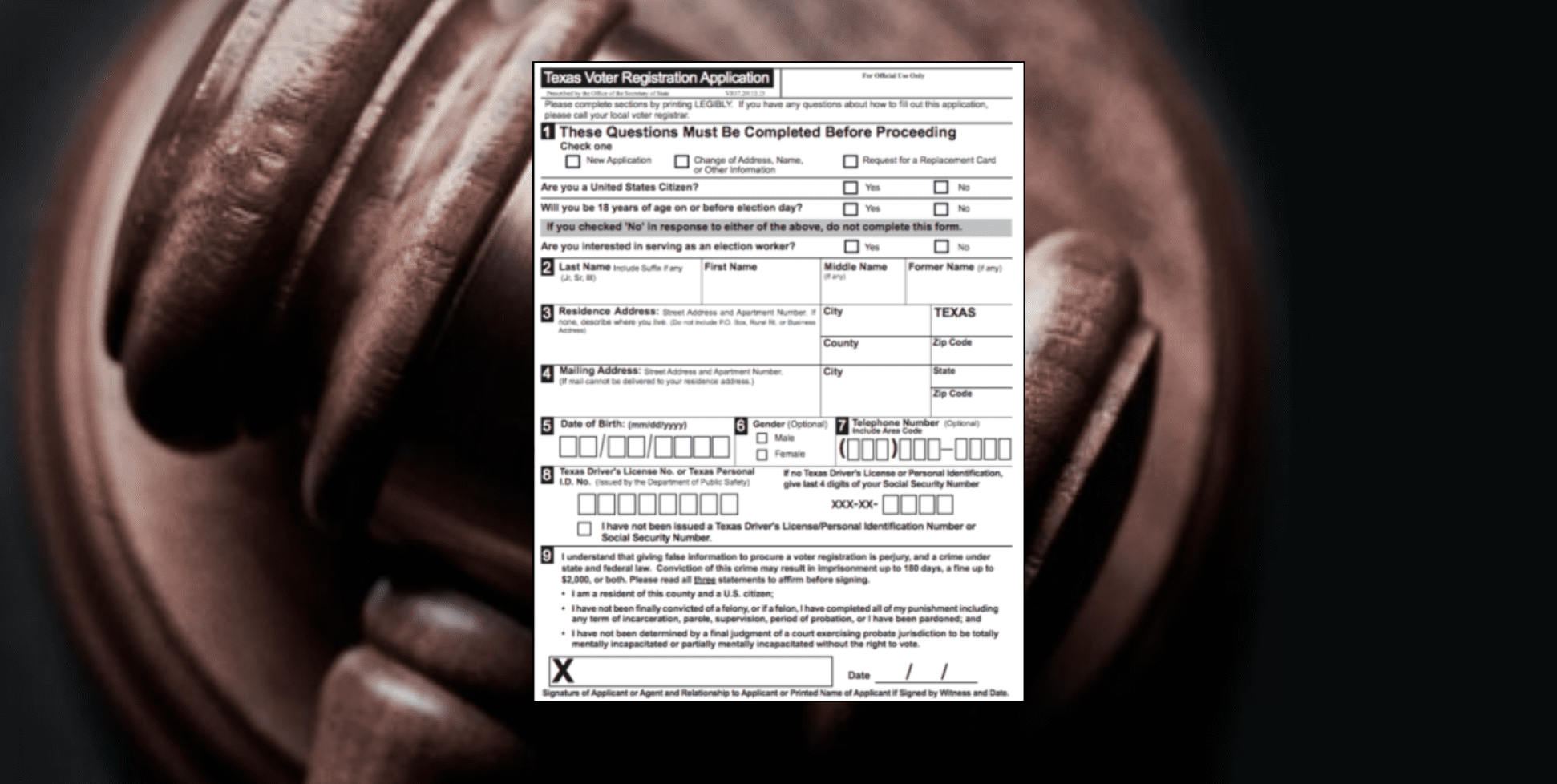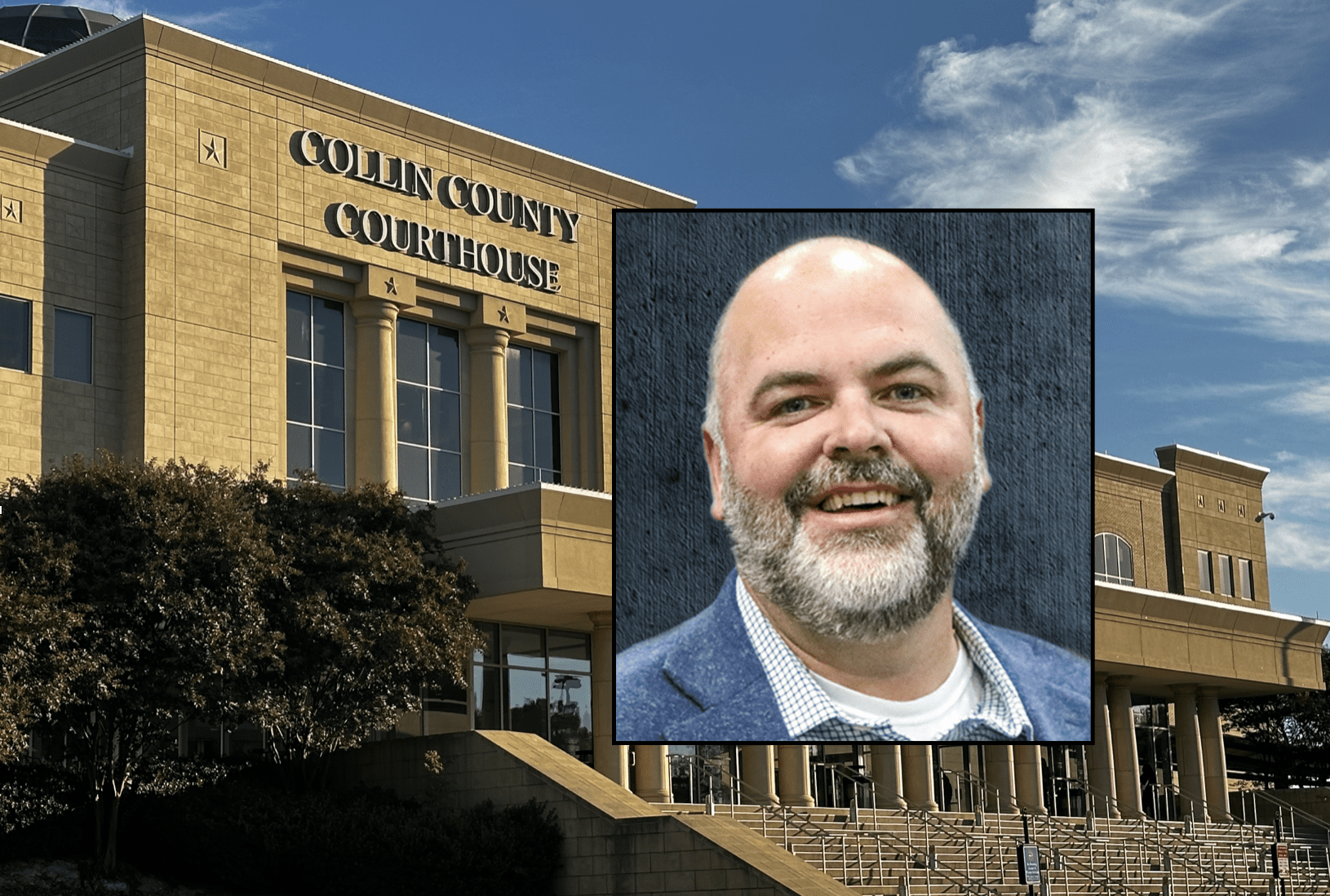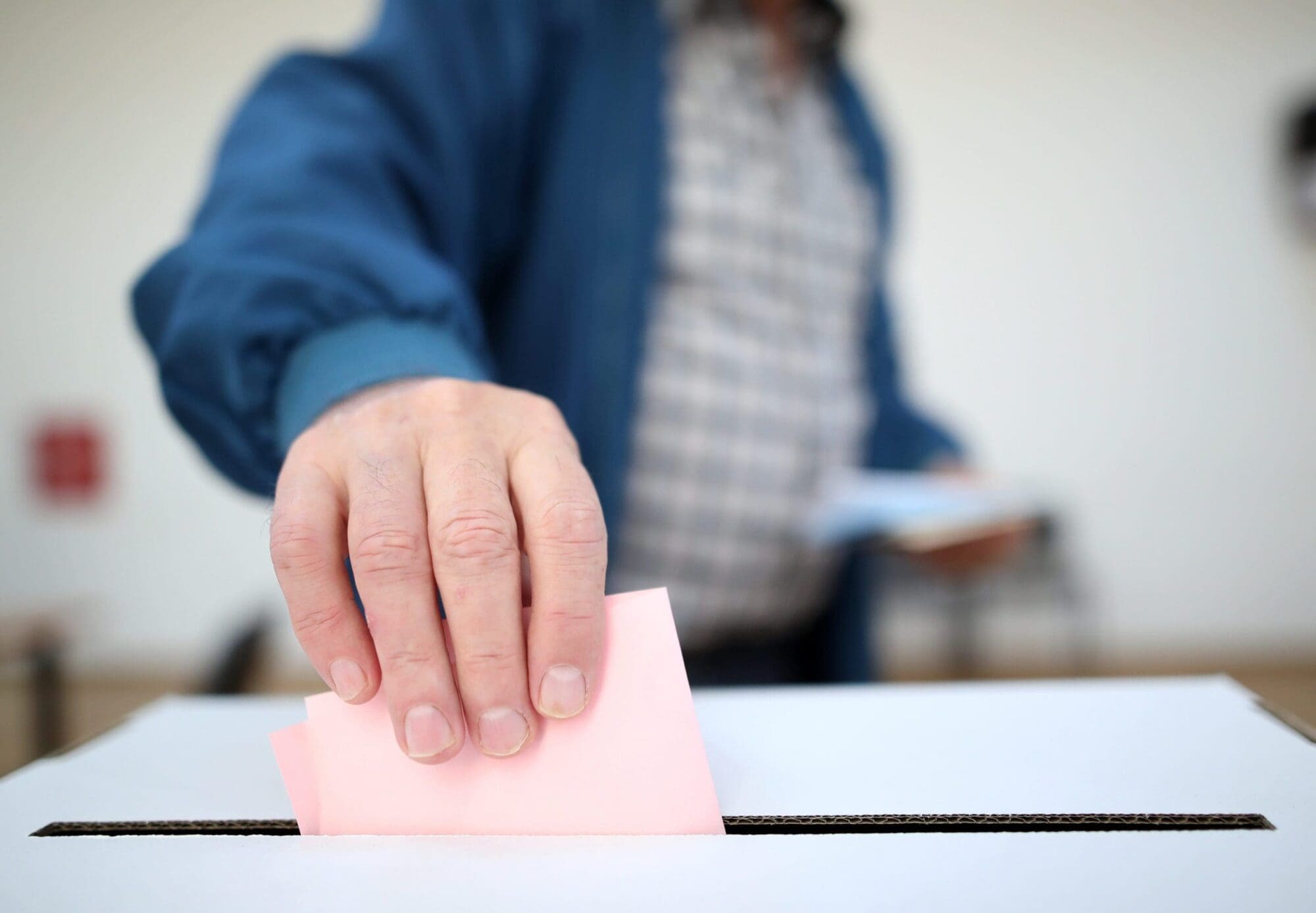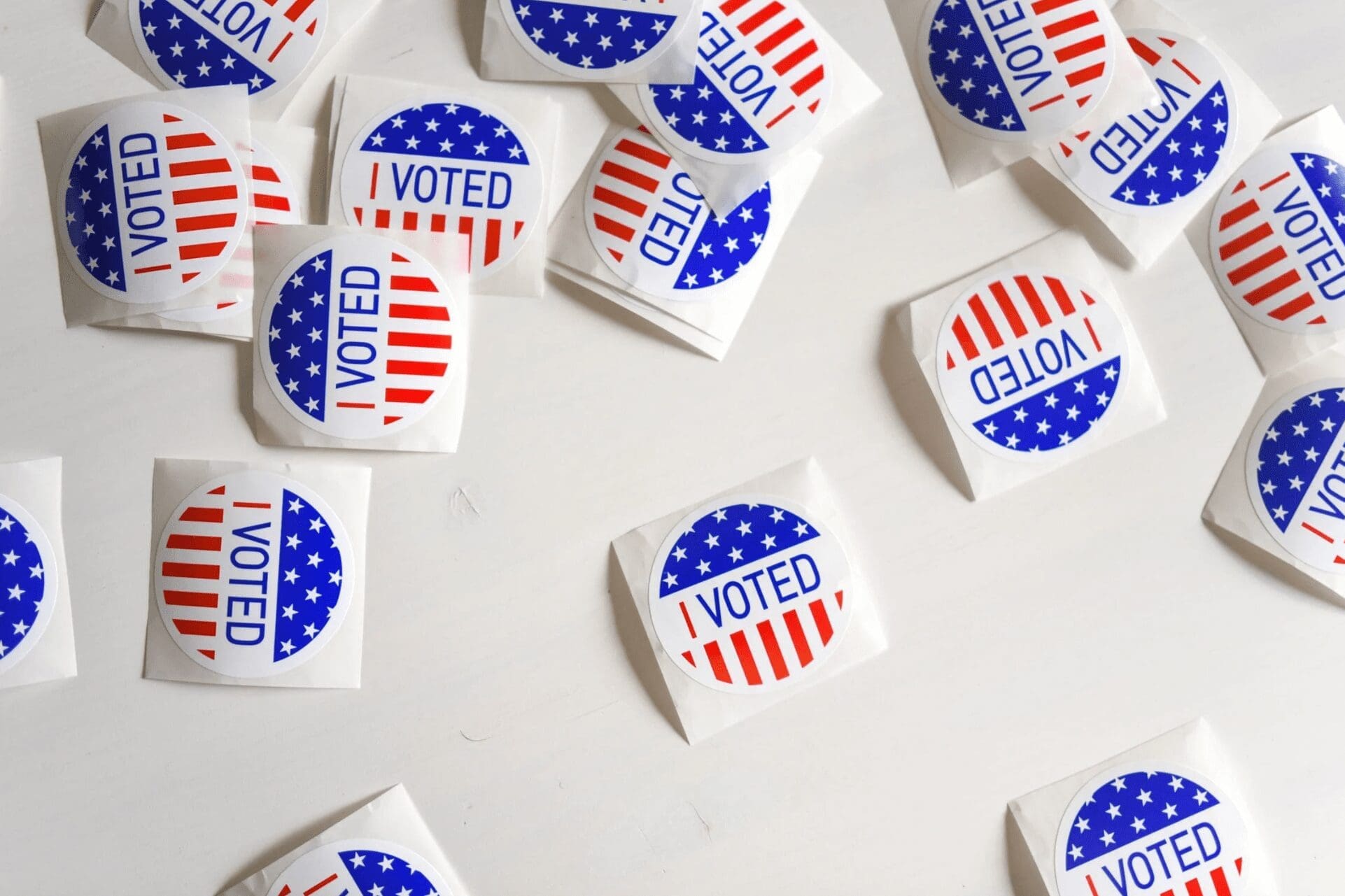Texas can continue requiring original “wet” signatures on voter registration applications after a federal court shot down claims by Democrat attorneys that the bipartisan election security measure was unconstitutional and violated civil rights laws.
A three-judge panel of the U.S. Fifth Circuit Court of Appeals ruled last month that requiring applicants to physically sign voter registration forms, creating a “wet” signature instead of simply an electronic signature, fulfills a legitimate state interest in secure elections and does not unduly burden the right to vote.
“Texas’s interest in voter integrity is substantial,” the judges wrote, adding that the state’s interest “relates to the qualifications to vote—are the registrants who they claim to be?”
Because the state’s application form includes the qualifications for voting and penalties for perjury next to the signature line, the court determined that an original signature attesting to the truth of the information provided is “a material requirement.”
“The Fifth Circuit correctly recognized that states have a substantial interest in election integrity and that an original signature requirement is a legitimate way to advance that interest,” said Autumn Hamit Patterson, an attorney with the Texas Public Policy Foundation who helped defend the law in court.
State legislators passed the election law in 2021 with near-unanimous bipartisan support.
The law clarified that applicants who submit a voter registration form by fax must also mail a paper application to their county voter registrar that contains “the voter’s original signature.”
Vote.org, a company that created an online voter registration app, sued election officials in Bexar, Cameron, Dallas, and Travis counties, claiming that the “Wet Signature Rule” violated the Civil Rights Act of 1964 and the U.S. Constitution.
The company was represented by eight attorneys with the law group started by Marc Elias, a longtime lawyer for the Democrat National Committee and Hillary Clinton, who is known for challenging states’ election security laws.
Texas Attorney General Ken Paxton and the voter registrars of Medina and Real counties also joined the lawsuit as intervenor-defendants.
A federal district judge sided with Elias and his plaintiff, blocking enforcement of the signature requirement.
None of the original four defendants appealed, suggesting Elias may have chosen to sue county officials who he believed agreed with Vote.org’s position. Lawsuits in which the parties are not actually in disagreement but are acting to steer the court towards some agreed-upon conclusion are known as “collusive suits.”
Paxton did appeal, along with the two intervenor counties.
The Fifth Circuit then reversed the lower court’s ruling, concluding that “Texas’s interests in ensuring reliability and reducing fraud are ‘sufficiently weighty’ to protect the Wet Signature Rule from constitutional attack.”
Other Democrat challenges to Texas election security laws are still pending in federal courts.
In August, a federal district court judge said Texas can’t reject mail-in ballots with the wrong voter ID, ruling that a 2021 law requiring voter ID numbers on mail ballots violated the Civil Rights Act.
The voter ID requirement was enacted as part of a comprehensive election security measure known as Senate Bill 1. Other portions of SB 1, relating to voter assistance and paid ballot harvesting, are also being challenged by left-leaning groups. The case was in court last fall before the same district judge who ruled against voter ID. More arguments are set for February.
In December, Texas Democrats petitioned the U.S. Supreme Court to overturn state law and force Texas to let everyone vote by mail, a process more vulnerable to fraud and abuse than in-person voting.
Last year, state lawmakers passed just a handful of measures to protect Texas elections. A special session to address election security issues failed to materialize in 2023.





